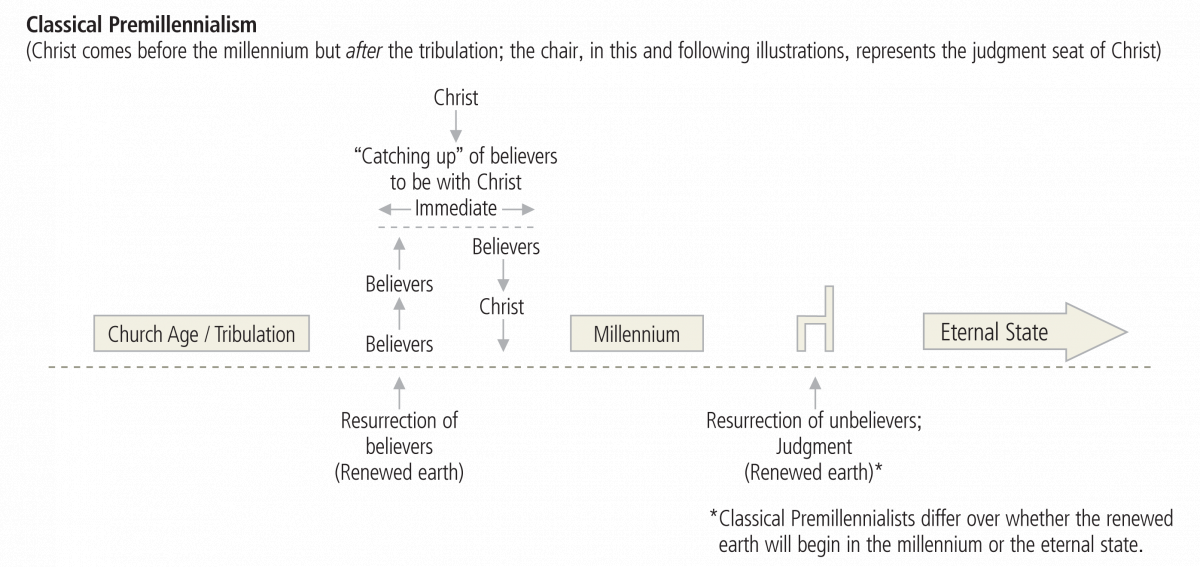- The Evangelization of All Nations.
- The Great Tribulation and Antichrist (Man of Sin).
- The Conversion and Restoration of Israel.
- The Second Coming:
- The Rapture
- The resurrection of all dead saints.
- Transformation of living believers.
- Destruction of Antichrist.
- The Binding Of Satan.
- The inauguration of the thousand year reign of Christ.
- The Rapture
- The Millennium.
- Apostasy at the end of the Millennium.
- Satan being loosed and leading rebellion against Christ.
- Satan and the wicked being destroyed.
- The Resurrection of the wicked.
- The Final Judgment.
- The New Heavens and New Earth.
The following is a diagram of Premillennialism:

Premillennial Problems
I believe that Premillennialism is not supported by the statement of the Confession here and in the following paragraph. Moreover, there is no Confessional support for Premillennialism in any of the major Creeds and Confessions of Christianity. Paragraph 2 (the current) speaks of the Rapture, i.e., the resurrection of dead saints and the transformation of living believers as happening “at the last day”. But clearly, in Premillennialism, the last day is separated from the Rapture by at least a thousand years! Actually, the Confession in this paragraph does not speak of the resurrection of the saints, rather, “all the dead shall be raised up”, this is the General Resurrection. But Premillennialism knows of two resurrections: (1) the resurrection of all saints at the Rapture and (2) the resurrection of the wicked prior to the Final Judgment. These two resurrections are separated by at least a thousand years. There is also no mention of any Millennium in the Confession or of separate resurrections, rather, the resurrection of all people is said to happen at the last day. This is the Confessional problem of (Classic) Premillennialism.
As to the biblical problems, it must be first of all noted that the Millennium is spoken of nowhere in the Bible except in Revelation 20. In the Old Testament prophecies which are often appealed to, including Isaiah 2, 4, 65, nowhere do we get the idea that the Kingdom will be temporary. Most importantly, a literal reading of Revelation 20 is problematic, because the book of Revelation is clearly and by its own admission a symbolical book (Rev. 1:1 KJV “signified”). Numbers are everywhere used in a symbolical way, so, how do we justify making the number thousand to be literal? Amazingly, all the great things which Premillenniarians expect to happen in the Millennium, are nowhere mentioned in Revelation 20. For example: the restoration and conversion of the Jews; peace and prosperity; Christ reigning from the earth; glorified bodies inhabiting the earth together with fleshly bodies; a decreased influence of sin and death. These things are simply not mentioned in Revelation 20. All these things come from a literal reading of Old Testament prophecies, although they are nowhere said to be limited to a thousand years in the Old Testament, but the Premillennialist interprets them in this way. For more on Revelation 20 and its interpretation, see below.
Premillenniarians argue that the binding of Satan must have such an effect so as to decrease his influence upon the earth, and therefore...


